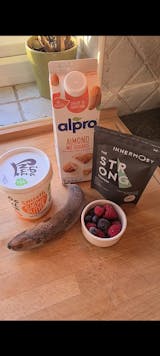When the world around you is falling apart, people start looking for meaning and support in places they haven’t before. With so many aspects of our lives feeling like they're often beyond our control, it’s no surprise that a spiritual practise called manifestation is becoming popular.
If you’re a fan of crystals, astrology, angel numbers or any other element of spirituality, it’s likely that you’ve heard of manifestation before. It’s not a new technique - if anything, it’s a very old one - but it’s gained popularity in recent years thanks to a new wave of interest in the practise. If you’ve ever got sucked into TikTok’s for you page, you’ll know that it’s a very popular interest on the social media site, and many celebrities are doing it also. So: should you be manifesting your hopes and dreams?
What is manifestation?
At its very simplest, manifestation is putting your intentions towards something that you would like to happen, which then supposedly makes it happen in real life. Thus, if you think about something in the right way and want it enough, the energy this puts into the universe will make it happen. However, it’s not as easy as this might sound - the universe is not a supermarket, after all. Manifestation is a term for being a creative force in your own life, and being active in making the things happen that you want to happen and creating your life as you want it to be.
We’re already manifesting things in life all the time. When you say you want a specific dream job and put your energy into working towards getting it, that’s manifestation. Or say you’re desperate to visit a country you’ve always wanted to see, and you work towards earning enough money and creating enough time and space in your life for you to visit. It’s all about working out and knowing the experiences in your life that you’d like to happen, and making that outcome a reality.
How to manifest
Before you can start actively manifesting your goals and learning how to manifest, it’s important to be clear about what you want. And we don’t mean a shopping list of being ultra-wealthy, highly successful and model-level attractive (although we wouldn’t say no), but desires that are detailed, specific and more importantly, achievable if you put your mind to it.
What you manifest could be as specific as your crush falling in love with you, moving up a level at work or finding your flat of your dreams, or it could be putting the energy out that you want to find a partner but you’re not sure who yet, or you’re hoping to move to a new city but aren’t sure how. Whatever you want, truly explore why you want it and own the knowledge, because this inner resolve is crucial when it comes to manifesting it. The more specific, clear and concise, the better. Rather than simply saying that you want to meet your soulmate and fall in love, think about the qualities you’d like the person to have, what they might look like and what their values are.
Manifestation techniques
Once you’ve spent some time exploring your desires and working out what you really want to ask you, it’s time to start the process of manifesting. How you do this can vary. The most common methods are through meditation, visualisation, writing it down or having a vision board or a mood board.

If you’re already a meditation guru, try making what you want to achieve your mantra and consider it during your daily meditation time. It’s all about making what you want to manifest the focus of your energy. Writing down your goals is a very helpful tool as it enables you to physically see what you want to achieve. The 369 method is popular on TikTok. This involves writing down what you want three times in the morning, six times in the afternoon, and nine times at night for either 33 or 45 days. Or simply try writing a letter addressed to the universe asking for your deepest desires. However you make your goals known, they should be solid and you should be thinking about them a lot. If this isn’t the case, you won’t be focusing hard enough on making them happen, and the manifestation won’t work.
It’s not as simple as writing a letter to Santa, because the next step is beginning to work hard towards your goals. Think about it as if you put your intentions out there, and now you have to do the work you ideated to achieve them. For instance if you manifested a job that you love, start updating your LinkedIn, networking and improving your skills to qualify yourself for that dream position. You won’t see any results without action.
In that sense, manifesting is as much about clarifying the work you need to do within yourself and then doing it, as opposed to waiting for the universe to deliver what you desire on a silver platter. Being the person who does the things they want to do will help you to become the person you want to be, and will get you what you want. It’s all about reframing.























